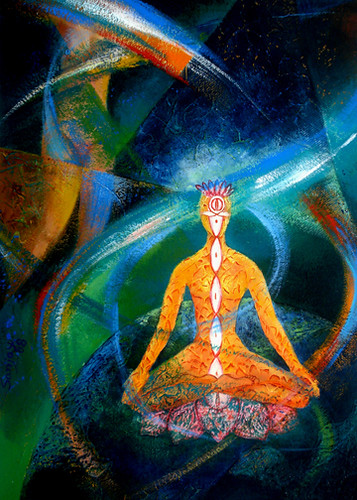
What we call history is, to a greater extent, an artificial line, defining people are either civilized or uncivilized based upon markers like writing, urban development or the use of metals that may not be crucial to the real character of people. It is unlikely that earlier humanity was any less human or any less sensitive than we are, even if they did not build cities like we do. So-called primitive peoples often produced art and literature far superior than what is being produced today.
It is also well known fact of history that so-called primitive people in the colonial era, like the Native Americans, were often more honest, kind and truthful than their European conquerors, who never honored a single treaty with them. Scientifically speaking, the yogi in a cave and the caveman are indistinguishable to the urban markers of modern civilization, though they are radically different relative to the evolution of consciousness.
In this regard, Hindu records through the Vedas and Purans suggest that human civilization – or at least some sort of advanced culture capable of spiritual development – has been going on much longer than our recorded history. These texts connect human history with longer natural and cosmic cycles, and current humanity with earlier humanities of tens of thousands of years ago.
It has also been the view of many spiritual thinkers worldwide that there were earlier humanities that underwent their own cultural developments, though not necessarily in a technological manner. The ancient Greeks, Egyptians and Babylonians firmly believed this. We are only now beginning to suspect these possibilities. What was previously regarded as the beginning of history around 3000 BCE (5000 BP – Before Present) is now being seen as part of a longer natural history, with culture, agriculture and language being much older.
The Vedas project a 'Yuga' theory of historical and cosmic development, the idea of periodic cycles of humanity and of nature, broken by great natural catastrophes. This fits in well with current scientific theories about natural history through the Ice Ages and warm periods like the one we are living in today. There are two cycles of 41,000 years and 24,000 years duration that overlap the 100,000-year Ice Age Cycle, which are main cycles of natural history scientists are looking at relative to early humanity. These are characterized by the position of the Earth's axis relative to the Sun, and therefore the amount of energy that the Earth receives. Though the exact relationships are not known, these cycles have a bearing on the world's climate and a profound effect on the life of all species. The Vedic Yuga cycle of 24,000 years reflects similar time frames.
The idea of earlier Manus and the earlier kalpas, or world-ages, such as we find in the Puranic literature, may reflect memories of these earlier phases of mankind prior to what our current culture recognizes as history. This Hindu connection to prehistoric eras of human species may be responsible for the Hindu idea of an eternal tradition of truth (Sanatan Dharma). It extends to the Hindu view of the universe, which is defined according to longer natural cycles of yugas extending into the age of the universe itself and a recognition that our current universe is only one of many that exists throughout the endless expanse of time and space.
From the standpoint of modern science, this 'Hindu view of time' better reflects the movement of natural history (and cosmology) that is marked by cycles and cataclysms over long periods of time. It stands in stark contrast to Western historical models that follow a linear and progressive model of history, generally focused on events of the last 5000 years, if not the last 500. These place human history apart from the nature's cycles and often opposed to them as well.
Such linear time models extend to Western politics and religion. The Western mind then interprets history according to its own linear models, and ignores the role of natural history and its cycles that was the real time frame in which ancient people actually lived.
As we move into an ecological age, we must once more respect natural history and natural time cycles. This will take the modern mind back in the direction of the Hindu view of time and the Hindu approach to history that has always based itself on such natural time cycles and a regard for the much greater antiquity of the human species. It also accommodates new discoveries in fields as diverse as natural history, genetics and cosmology.

No comments:
Post a Comment